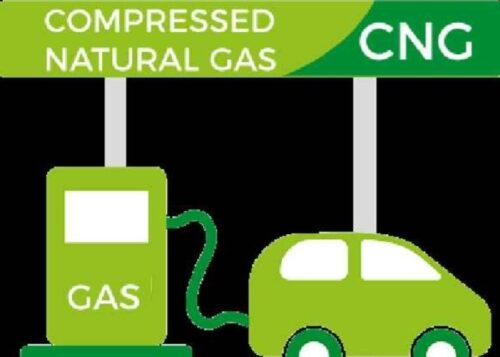
The Federal Government has revised its plans for the implementation of its Compressed Natural Gas (CNG) initiative, designed to reduce transportation and logistics costs for Nigerians amidst ongoing economic hardships. This development comes as the Presidential Compressed Natural Gas Initiative (PCNGI) launched the nationwide Mass Transit Conversion Programme on Wednesday, without any mention of the promised 2,700 CNG-powered buses and tricycles initially scheduled for deployment alongside the program.
The CNG Initiative: A Path to Economic Relief
The CNG program aims to convert Nigeria’s commercial vehicles, including buses and haulage trucks, from petrol and diesel to CNG, a significantly cheaper and more environmentally friendly fuel option. By transitioning to CNG, the government seeks to alleviate the high cost of commuting and goods transportation, thereby reducing the financial strain on citizens and the overall cost of living.
This initiative follows steep increases in transportation costs and other expenses triggered by the removal of fuel subsidies and the deregulation of the naira on May 29, 2023. While petrol prices hover around ₦620 per liter and diesel approximately ₦950, CNG offers a more economical alternative at ₦213 per standard cubic meter (scm)—about 35% of the cost of traditional fuels.
In addition to being cost-effective, CNG-powered vehicles are more fuel-efficient and versatile, often equipped to run on both petrol and CNG. Analysts predict that a shift to CNG for at least 25% of Nigeria’s haulage fleet would lead to noticeable reductions in food prices and other goods, easing the financial burden on households.
Challenges with Implementation
Despite the ambitious goals, the absence of the 2,700 CNG-powered vehicles during the rollout points to logistical hurdles, including delays with foreign manufacturers and transportation challenges. These setbacks have slowed the government’s timeline for introducing critical assets to Nigeria’s transport sector.
However, the Federal Government remains optimistic, aiming to launch these vehicles before May 29, 2024, to mark President Bola Tinubu’s first year in office. Additionally, plans are in place to establish 100 CNG conversion workshops and 60 refueling sites across 18 states by the end of 2024.
Ambitious Goals for the Future
According to Bayo Onanuga, Special Adviser to the President on Information and Strategy, the administration aims to have one million CNG-powered vehicles operational by 2027. This ambitious plan is expected to create 25,000 jobs and save the country $2.5 billion annually once fully implemented.
The initiative, led by Michael Oluwagbemi, Program Director and Chief Executive of the PCNGI, emphasizes the transition to affordable, safer, and more climate-friendly energy solutions. The program’s broader objectives include reducing environmental impact and fostering a sustainable energy transition in Nigeria’s transport sector.
Initial Rollout and Partnerships
The initial phase of the conversion program is set to commence in Lagos, Kwara, Rivers, and the Federal Capital Territory (FCT). The rollout will involve collaboration with key transportation unions, such as the National Union of Road Transport Workers (NURTW), Road Transport Employers’ Association of Nigeria (RTEAN), and the Nigerian Association of Road Transport Owners (NARTO).
To kickstart the initiative, PCNGI has identified eight of over 120 designated workshop sites for vehicle conversion. These workshops will provide stakeholders with the opportunity to observe and evaluate the process while offering valuable feedback as the program scales to 15 states within the next 45 days.
Incentives include a 50% discount on equipment and kits, along with financial support for installation costs, particularly for qualified union members. The government hopes these measures will encourage widespread adoption of CNG-powered vehicles.
A Sustainable Vision for Nigeria
PCNGI, in partnership with Rolling Energy, has expressed its commitment to building a sustainable future for Nigeria. The establishment of facilities like the Ilorin site and the nationwide conversion program are pivotal steps in reducing carbon emissions and enhancing the efficiency of mass transit systems.
The public can access CNG conversion services at designated centers, including Femadec, FixIt45, and Portland in Lagos; NITT and Nipco in Abuja; Total Support and Femadec in Abuja; and Rolling Energy in Ilorin.


